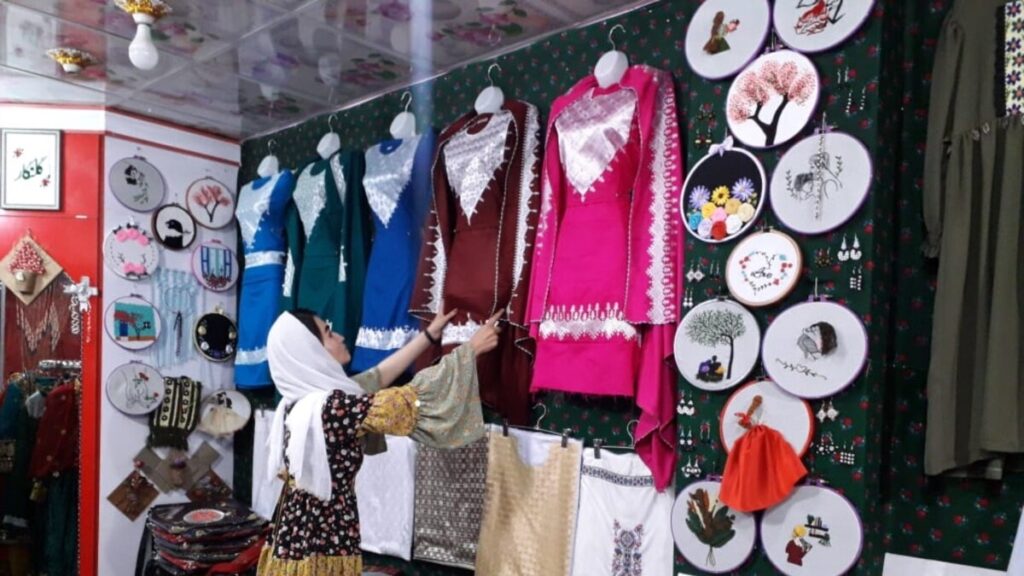Author: Mahdi Mozaffari
In traditional societies, the role of women has often been limited to household chores and child-rearing. However, over time and through social, cultural, and economic transformations, the presence of women has expanded beyond the family environment. Today, women are expected not only to fulfill their traditional duties but also to actively participate in various social, cultural, scientific, political, and economic spheres, playing a significant role in society.
The series of articles titled “Women and Entrepreneurship: Barriers and Solutions in Traditional Societies” examines the challenges faced by women on the path to entrepreneurship from individual, cultural, economic, and social perspectives. In previous issues, we explored issues such as women’s employment and entrepreneurship from individual, cultural, and economic viewpoints. In this issue, our focus will be on the barriers and problems faced by working women in the context of traditional society. We will analyze these challenges more deeply and provide practical solutions to overcome them.
The extensive participation of women in economic, cultural, and social fields has brought significant achievements for women and society as a whole. However, at the same time, traditional societies have also created new challenges and tensions for them. The multiple roles and varying expectations placed on women as wives, mothers, homemakers, and workers can impose considerable psychological and physical pressure on them.
Traditional Division of Labor: A Barrier to Equality and Well-being for Women
The traditional division of labor, which categorizes tasks into “female” and “male,” is rooted in outdated and unequal beliefs. In this structure, household duties such as cooking, cleaning, and childcare are viewed as inherent responsibilities of women. In contrast, tasks related to the outside world, such as working in high-paying jobs and making major decisions, are recognized as male domains.
This traditional categorization poses numerous challenges for women in the modern world. First, this structure hinders gender equality in society. Women are often deprived of equal educational and job opportunities due to their household responsibilities. This not only prevents individual advancement for women but also is not beneficial for society as a whole, as it overlooks the talents and capabilities of half the population.
Second, the traditional division of labor imposes significant psychological and social pressures on working women who juggle multiple roles simultaneously. In many cases, women are compelled to take on household responsibilities and family care alone in addition to their professional duties. This can lead to burnout, stress, and anxiety among women, adversely affecting their physical and mental health.
In today’s world, with the increasing participation of women in the workforce and changing traditional family roles, there is a greater need than ever to reassess the traditional division of labor. To achieve gender equality and enhance women’s well-being, it is essential that household duties and childcare responsibilities are shared equitably between men and women. Additionally, traditional attitudes towards the roles of women and men in society must change, and support should be extended to women in all areas, including high-paying jobs and major decision-making processes.
Social Insecurities
The active presence of women in society is essential for the progress and development of any country. However, there are numerous barriers to this presence, one of the most significant being social insecurities. These insecurities pose challenges for women when traveling between cities and staying in hotels and public places, hindering their active participation in various social, economic, and cultural activities.
The negative impacts of these insecurities are particularly evident for working women and those with children. These women, who may need to travel frequently for their professional or educational duties, face numerous difficulties due to security concerns. The lack of adequate facilities for safe and comfortable accommodation, reliable transportation, and insufficient legal and social support places women in vulnerable positions and prevents them from actively engaging in society.
Moreover, social insecurities can have negative psychological consequences for women. The fear of harassment, violence, and other threats can diminish women’s confidence and deter them from engaging in activities outside the home. This not only harms women but also deprives society as a whole of their participation and capabilities.
To address this issue, various measures must be taken at different levels. These measures include increasing public safety, especially in public spaces and transportation, promoting a culture of respect for women, enacting protective laws, and creating appropriate infrastructure for the safe and comfortable accommodation of women. Additionally, it is essential to change societal attitudes towards women and their roles through education and cultural initiatives, facilitating their active and worry-free participation in all social spheres.
Solutions
To overcome these challenges and achieve a more equitable society, various actions must be taken at different levels of society:
- Changing Attitudes: The first step in this process is to change traditional attitudes towards the roles of women and men in society. This requires education and cultural initiatives at various societal levels, including families, schools, and media. Individuals should be taught that household responsibilities and child-rearing are not solely women’s duties; men also share responsibility for these tasks. This shift in attitude will create a foundation for greater male participation in household and family matters.
- Social Support: Governments and social institutions must provide necessary support to assist working women in managing multiple responsibilities. Establishing daycare centers and childcare facilities is one of the most important forms of support. Access to these centers allows working women to focus on their jobs without worrying about their children’s care. Additionally, providing benefits such as maternity leave and unpaid leave for caring for sick children can help women manage their time and balance work and life.
- Infrastructure Development: Enhancing social security and developing necessary infrastructure, such as safe and accessible public transportation, can aid women in their active participation in society. Access to affordable and secure public transport enables women to commute to work and engage in other social activities without worry. Furthermore, creating safe environments in public spaces gives women a greater sense of security and encourages them to participate more actively in society.
- Equitable Division of Responsibilities: Active male participation in household duties and child-rearing helps women manage their time better and reduces psychological and physical stress. This requires a change in men’s attitudes toward their roles within the family and an acceptance of greater responsibilities regarding household tasks and children. Encouraging men to participate in domestic affairs not only assists women with their duties but also fosters stronger emotional bonds among family members and contributes to raising healthier children.
By striving to address the existing challenges related to the division of labor, we can move towards a fairer society for both women and men—one where both genders equally share responsibilities at home and family while enjoying equal opportunities for advancement and flourishing in all areas of life.













